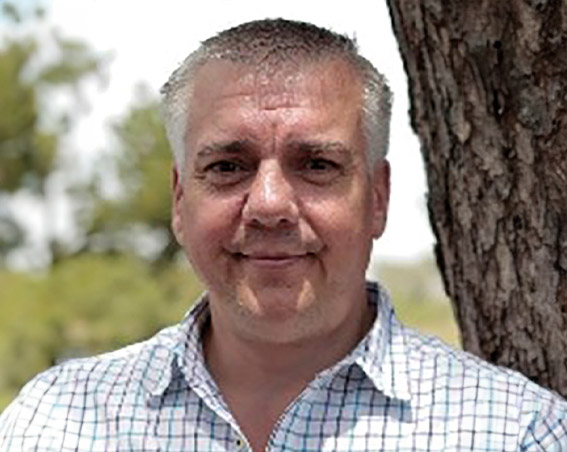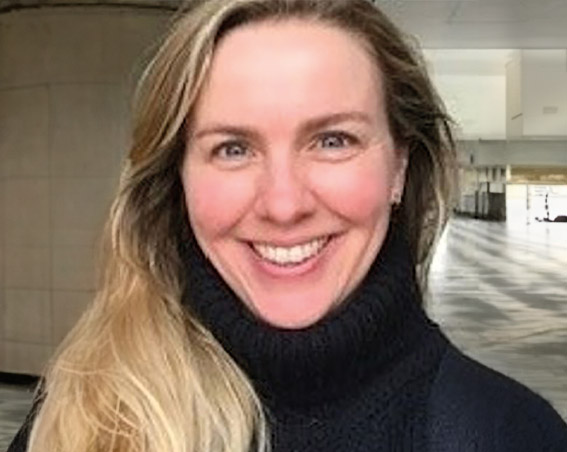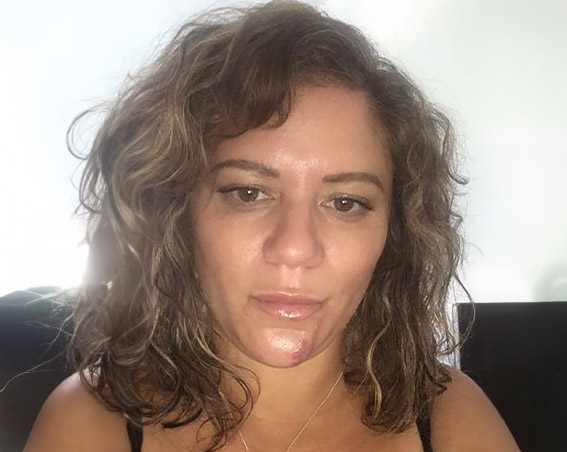The Body Shop (TBS) was founded in 1976 in Brighton, England, by Dame Anita Roddick. We are an activist brand that seeks to make a positive difference in the world by offering high-quality, naturally inspired skincare, body care, hair care and make-up - produced ethically and sustainably. Our products are sold globally through our own stores, franchisee agreements and e-com channels.
Having pioneered the philosophy that business can be a force for good, this ethos is still the brand’s driving force. The Body Shop’s campaigns have inspired and involved customers in positive and social change for decades - as an example in 2018 we presented an 8.3 million strong petition to the UN to call for a global permanent ban on animal testing of cosmetics.
Through our Community Fair Trade programme, we form long-term trade partnerships with expert producers and farmers providing market access. Our trade partnerships directly benefit our partners and their communities.
Carbon footprint reduction has become a priority for many cosmetic companies. Can you share some successful strategies or initiatives implemented by The Body Shop over the years to significantly reduce their carbon emissions across their operations. If you can, please include manufacturing, logistics, and supply-chain?
Anita and TBS showed early awareness of the impacts of business emissions and showed leadership in several ways – interest in wind farms before anyone understood what they really were and investment in 2011 to install (at the time) the largest roof top mounted solar installation in the UK. We also led the way on global campaigning such as ‘Choose Positive Energy’ in 2002 highlighting renewable energies such as wind and sea power! Even before these events we had installed a wind turbine at our manufacturing site in Littlehampton in the early 1990’s (legend has it that it never had much oomph to power anything, but it was very successful as a talking point to raise awareness – people still talk about it today)!
Carbon reduction is very much a priority focus for many businesses. Carbon footprinting is a complex and challenging exercise to undertake as accessing meaningful and accurate data can be difficult. When executing our calculations and analysis we ensured alignment with the Science Based Targets Initiative framework (SBTi). To gain greater understanding and opportunities for reductions, we carried out some deeper dives across a number of our products using the Life Cycle Analysis (LCA’s) approach.
Having identified the main contributors of carbon under our Scope’s 1, 2 and 3 we were able to develop a reduction roadmap with cross functional teams to focus efforts on carbon reduction initiatives. A large part of carbon reduction plans involves Scope 3 which is often more complex and challenging as it is predominantly outside of our immediate control. However, we were still able to identify opportunities and levers to seek reductions. As examples, this included looking at our ingredients, optimising freight carriers and routes and increasing refills in our stores (another thing that Anita and TBS pioneered back in the late 1970’s)!
One of the focus ingredients is Community Fair Trade shea butter from our partner in Ghana, a hero ingredient of ours and much loved by many. In fact, we have been working with the same partner for over 30 years and are now at the stage of putting our efforts into understanding what capacity and support is needed to help reduce carbon emissions from shea butter production. We have conducted some initial analysis on the use of logs as the predominant fuel used as part of the butter making process. We have identified a couple of solutions including efficient cook stoves and the use of shea nut residue as alternatives to burning logs. TBS is an active project partner in a much wider programme designed to tackle shea parkland degradation with widespread community training, establishment of plant nurseries and the planting of shea and non shea seedlings across the shea belt of Ghana.
Energy in manufacturing processes is crucial for reducing emissions. What innovative approaches or technologies did The Body Shop adopt to optimize energy usage and increase efficiency in their production facilities?
The Body Shop ceased its own manufacturing operations in the early 2000’s. However, this means that for us as a global business the manufacturing emissions associated with our products have moved into Scope 3. Within our life cycle analysis, we worked with our larger manufacturing partners to understand their energy use and emissions contributions to our products, with a view to identify methods for optimising renewable energy.
Renewable energy sources play a vital role in transitioning towards a low-carbon economy. Can you discuss the challenges or opportunities associated with integrating these sources into manufacturing operations?
As an international organisation we have found that renewable energy is not always available in all our markets to power our distribution centres, stores and offices. As mentioned previously we have installed a solar installation in the UK to help power our largest operating site, however replicating this across small sites (such as stores) is not possible, therefore monitoring and adjusting energy supply is important. We installed Automatic Meter Readers across the majority of our estate to ensure we could have accurate data relating to the energy usage. This data supports our markets in analysis and ways to optimise energy use and look for additional reductions.
Some companies have employed Carbon offsetting strategies to counterbalance their unavoidable emissions. Could you explain the different ways of offsetting and provide insights into how cosmetic companies can effectively incorporate offsetting into their overall carbon reduction strategy?
Offsetting and carbon removals are ways of ‘paying’ to cover for emissions that are generated through an organisation’s operations – whether these are avoidable or unavoidable.
Offsetting is a sticky plaster, a good one in the short term, but not a sustainable solution we should be looking at for the longer term. At TBS we have so far concentrated our efforts on emissions reduction planning. This is because we do not believe that offsetting is viable and does not mitigate immediate emissions being generated rather it’s just kicking the can down the road.
Let’s add another term Carbon Insetting. This forward-looking approach is designed to divert those financial investments in offset credits into solutions designed to avoid emissions from happening in the first place. As an example, funding renewable energy solutions for a supply chain partner that in turn allows them to produce our products using ‘good’ renewable energy.
Transportation and logistics are often significant contributors to the carbon footprint of cosmetic products. What in your opinion are the best innovative approaches or best practices to optimize transportation routes, adopt more eco-friendly modes of transportation, and reduce emissions associated with the distribution of their products?
As with so many areas relating to greenhouse gas (GHG) emissions, collaboration with other stakeholders to realise reductions and solutions at scale is key. As a global organisation transport features as a very high contributor of carbon emissions.
Low carbon transport options should always be the first place to look such as electric vehicles and removal of airfreight, ensuring trucks and shipping routes are fully utilised rather than shipping goods in half empty containers.
An interesting potential could be to even co-ordinate with other businesses to maximise logistics and deliveries to high street locations for example, in effect sharing the load.
The Body Shop’s long-standing commitment to ethical and sustainable sourcing practices is renowned. Can you elaborate on the company’s approach to sourcing raw materials ethically and the principles that guide these efforts?
Going beyond standard practice in the beauty industry, and how our stance of ethical trading really began - we look back to 1987 when Dame Anita Roddick changed the way the company sourced some of its key ingredients and gifts and accessories from suppliers around the world by creating our multi award winning Community Fair Trade (CFT) Programme.
We have been trading with community-based businesses of high-quality ingredients and gifts and accessories ever since and our current scope is 19 partners across 15 countries. Our suppliers work across all types of production systems – as an example for ingredients this includes small holder farmers, wild harvesters, co-operatives and for gifts and accessories paper makers, textile manufacturers, artisans and homeworkers.
Our Sustainable Sourcing Charter is our operational framework which guides both our CFT partners and TBS to collaboratively work towards delivering fair and sustainable supply chains across three key principles. These are People, Planet, and Product and within each of these we set objectives for ourselves and all supply chain actors to achieve.
Community Trade and Fair Trade practices were always a crucial aspect of the Body Shop’s sustainable sourcing. Can you briefly explain the subtle differences between the two trading practices? How does The Body Shop ensure fair wages, safe working conditions, and equitable relationships with its suppliers, especially those in developing countries?
Community Fair Trade and Fair trade share similar principles and goals. However, Community Fair Trade is our own in-house bespoke fair trade programme which is independently verified annually by an external assurance provider.
Rather than using a standards and certification system which is the more widely adopted approach
our Charter provides us with flexibility to include partners that may not fit easily into a Standards type scheme.
Our approach is important to us, and we have been working with the same third-party verification organisation for many years. By working in this way, we can build on our already strong understanding of the realities at ground level for our partners and their wider communities including salient risks such as safe working conditions and respecting workers’ rights.
We adopt a focus lens on important aspects of inequality such as identification and inclusion for hidden labour (e.g. child labour and migrant labour) and we have always disaggregated our data by gender enabling us to focus on women’s and girls’ equality initiatives. We work very closely with all the partners in our programme and visit as often as we can where we review ongoing collaborative initiatives designed to strengthen capabilities. Ultimately our engagement is designed to co-develop sustainable community-based businesses that deliver improved efficiencies and realise increased market access.
We know that each supplier and supply chain is completely unique which is one of the many great things about our programme and therefore each will have its own nuances, strengths and needs for improvement actions. Where appropriate we also add our expertise to building capacity whether it is short, medium, or long-term focused areas of work, and work hand in hand with our partners as much as we possibly can.
Responsible agriculture plays a vital role in the cosmetics industry’s sustainability efforts. What initiatives has The Body Shop undertaken to promote sustainable farming practices, biodiversity conservation, and minimizing the environmental impact of raw material cultivation?
Under the Planet section of our Charter, for example we ask our partners to respect local, national, and international laws (whichever offers the highest level of protection) with a focus on land use and tenure, water, and agrochemicals. We have seen a number of innovative solutions such as water harvesting techniques; dam liners and tank installations through to educating local communities and individual farmers in good agricultural practices where it is needed.
Indeed, many farmers and producers already adopt traditional methods that mirror good agricultural practices including regenerative approaches in agriculture and maintaining healthy forestry systems through good wild harvesting techniques. By working closely with our partners, we are able to understand seed stock, planting cycles, processing methods and equally as important, we know the people and the communities engaged in these activities.
Many of our partners are already witnessing climate change effects first hand and we support positive environmental impact projects within and beyond our own supply chains. We have ongoing sector level engagements recognising that our efforts alone cannot achieve the big changes we need to see including tackling land degradation and educating local communities in biodiversity conservation. These project efforts are leading the way in tackling huge systemic pressures and we will always be looking for new opportunities to be part of similar programmes which support impact at scale.
Transparency and traceability are essential for building consumer trust and ensuring accountability in the supply chain. Can you describe The Body Shop’s approach to providing transparency about the origins of its ingredients and the traceability measures implemented to track materials from source to product?
At TBS we have purposefully built and maintained long term relationships with our CFT suppliers which includes a strategic action to source specific materials solely from individual partners. This approach allows for maximum positive impact programmes as a result of income from TBS trade. We can therefore communicate with consumers authentically and credibly on the origin of our natural ingredients.
One of our programme mechanics is a quarterly review of the flow of our materials using information provided to us from all our supply chain partners, from the producer groups through intermediary service providers and our contract manufacturers. Our team also carries out traceability checks within country when visiting with partners.
As consumer awareness and demand for sustainable and ethical products continue to grow, how could the beauty industry learn from The Body Shop experience and so further strengthen its sustainable sourcing practices and address emerging sustainable challenges in the industry?
If we only talk about cost, then we miss the opportunity to talk about value.
At TBS we have always used our experience and voice to encourage and forward debate. Whether we talk with consumers, other businesses, NGO communities and governments we know collaboration is essential. The sustainable challenges we all face are enormous and cannot be solved alone.
We should continue to be open about the successes and the challenges and to build on that learning. Strong mutually reinforcing relationships with all supply chain actors who want to create shared value is crucial, this means working in a way that not only has economic benefit but at the same time generates positive and real impacts for our society and nature.
There are many benefits for our business in our approach. Not only does this fit well with our vision as a business as a force for good, attract green investment to amplify positive impacts, we are also able to create marketing activities that connect with media and consumers.
Making sure all suppliers, producers, artisans, farmers, and workers have a voice and equal seat at the table, essentially taking a stakeholder approach is an absolute must; this has always been central to our Community Fair Trade programme ethos and will continue to be.
Experts
Panelists
References and notes
- https://rt.rspo.org/event/125dd34a-e96b-424b-9518-d3eda6bd4ff3/summary
- https://rspo.org/our-impact/research-and-evidence/research-library/
- https://rspo.org/resources/?category=best-management-practices-bmps































